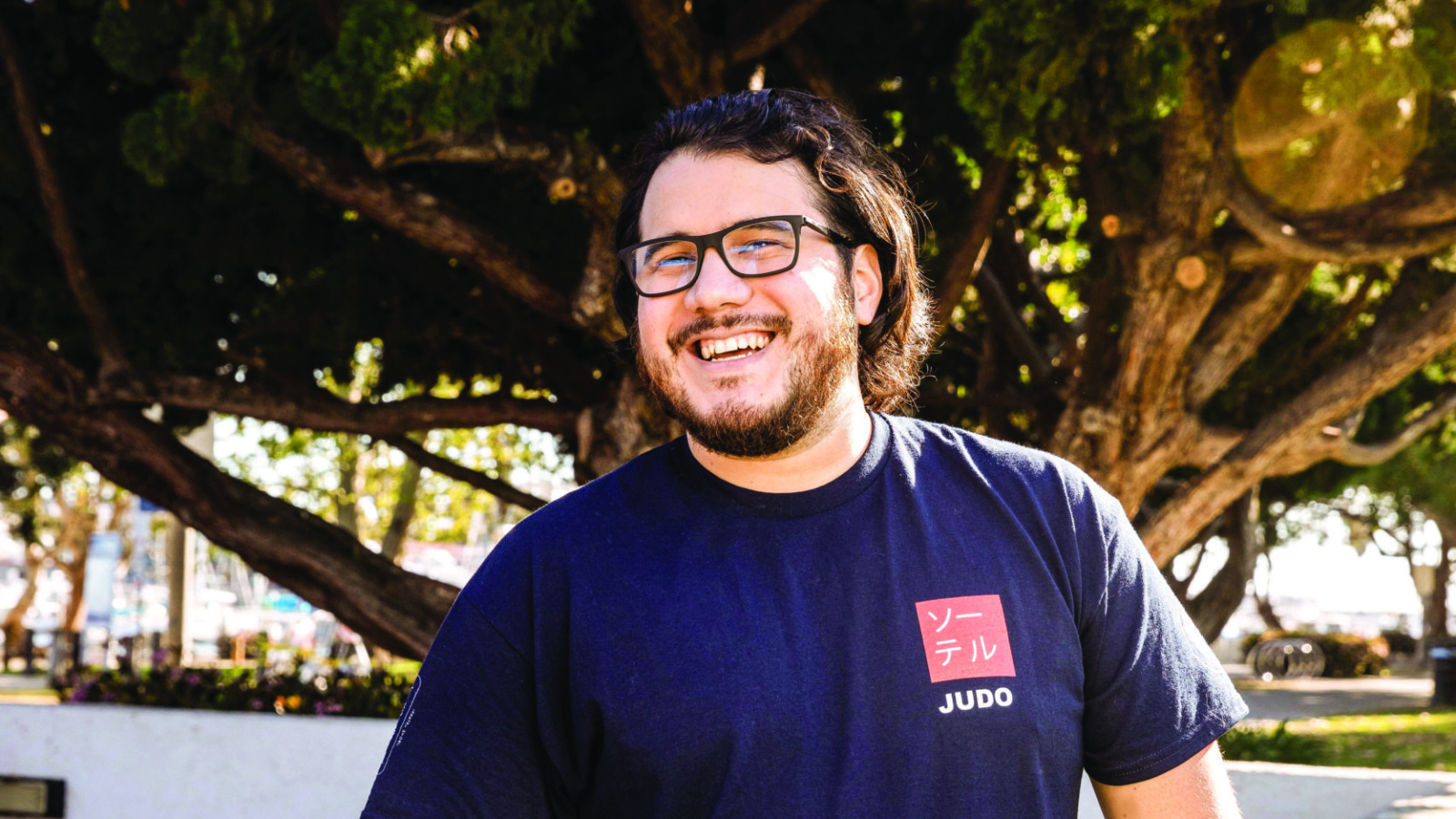Adrian Mendoza ’12 codes a path to tech success
Adrian Mendoza ’12 didn’t really know what he was signing up for when he enrolled in his first computer science class at Williston. Growing up in Santa Ana, California, the youngest of four brothers in a large Mexican-American family, he had cousins that loved playing games on their PCs. “I was thinking that computer programming meant building computers, more like the hardware side of it,” recalls Adrian, now a software development lead with the Los Angeles virtual-reality entertainment company Dreamscape Immersive. “I get to class, and it was a big surprise. It’s all just writing lines of code. But I liked it, and I stuck with it.”
He stuck with it all the way through AP Computer Science, joined by just one other classmate. He credits that experience—“basically one-on-one tutoring for a whole year”—with preparing him for his next academic success, earning his degree in video game design at the University of Southern California. “It really built up a foundation that I was able to take to USC and use for making video games in college,” says Adrian, who was his Williston class president and received the prestigious Archibald V. Galbraith Prize as the top male student. Within days of his graduation from USC in 2016, he was working at Dreamscape.
Boarding school followed by four years of college was not the typical track taken by the kids at Mendez Fundamental Intermediate School, the predominantly Mexican-American middle school Adrian attended, he notes. But through his involvement with A Better Chance, a group that introduces lower-income students to independent schools and assists with the application process (and after meeting with representative Christa Talbot Syfu ’98, his future advisor), he was accepted to Williston with financial aid.
“And so, at age 14, I decided to leave my family and attend a school on the other side of the nation,” he recalled in his 2012 Commencement address. “It was probably one of the best decisions of my life.”
Still, he had to adjust to his new environment. “As a Mexican-American, I was more or less the majority in my past schools. And I very quickly found, okay, I’m at Williston now. That is not the case.” It was culture shock, he says, but it was “the most fun culture shock you could have. A lot of the minority population would gravitate to each other and find friends and support from faculty. And we would also be pretty good about branching out. The sports that you play, everything kind of keeps you moving and talking with different people.”
With the backing of classmates, teachers, and other mentors, Adrian thrived at Williston. In addition to success in academics and sports, he was able to take a two-week homestay trip to Ecuador and joined an expedition that climbed Seattle’s Mt. Baker, both made possible by financial assistance and private scholarships. Looking back, he says, he may even have pushed himself too hard.
“I put a lot of pressure on myself,” he acknowledges. “Once you start setting yourself on a track in high school of doing everything, it starts to get hard to stop doing everything. You start to expect it of yourself.”
Now living in the Mar Vista neighborhood of Los Angeles, Adrian is paying more attention to his work-life balance at Dreamscape. The company creates virtual-reality “adventures,” offered at a handful of locations around the country, where customers don special headsets and sensor-equipped suits that let them participate in a movie-like story that appears to be unfolding around them. When he was first hired, he put in the long hours expected at a tech startup, working on story lines based on a visit to an alien zoo and the Men in Black films. Today he has taken on more leadership responsibilities at the company, and is developing his own horror-themed production.
Adrian is a proud supporter of Williston, in particular the school’s initiatives around diversity, having experienced how financial aid changed his own life. “It definitely gave me a path, and shed some clarity on which way I could go,” he says. “There were a lot of different opportunities, but it wasn’t as confusing. I knew that I could build a route to those opportunities if I wanted to, and I had the tools to do it.”

